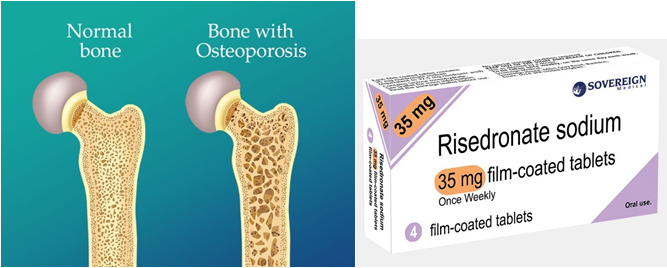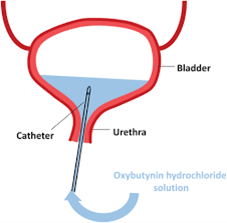The nurse administers risedronate to a client with osteoporosis at 07:00. The client asks for a glass of milk to drink with the medication. Which action should the nurse take?
Consult a pharmacist about the scheduling of the dose one hour after the client eats.
Assign unlicensed assistive personnel (UAP) to bring the client a glass of low-fat milk.
Withhold the medication until the client’s breakfast tray is available on the unit.
Instruct the client that it is necessary to take nothing but water with the medication.
The Correct Answer is D
Risedronate should be taken with plain water only. It should be taken on an empty stomach, at least 30 minutes before eating or drinking anything other than plain water. Taking risedronate with milk or other beverages can interfere with its absorption and reduce its effectiveness.

Nursing Test Bank
Naxlex Comprehensive Predictor Exams
Related Questions
Correct Answer is B
Explanation
Filgrastim is a medication used to increase the production of white blood cells. An increase in the client’s white blood cell count from 2,500/mm3 to 5,000/mm3 after receiving five doses of filgrastim indicates that the medication has been effective in increasing the client’s white blood cell count. The nurse should inform the client of this positive outcome.

Correct Answer is C
Explanation
Oxybutynin is a medicine used to treat symptoms of an overactive bladder. One of the side effects of oxybutynin is that it can cause dry mouth, constipation, and dry skin21. These side effects can increase the risk of dehydration. Additionally, oxybutynin can cause flushing and heat stroke. Therefore, it is important for the client to take measures to avoid dehydration and over-heating while training for a marathon.

Whether you are a student looking to ace your exams or a practicing nurse seeking to enhance your expertise , our nursing education contents will empower you with the confidence and competence to make a difference in the lives of patients and become a respected leader in the healthcare field.
Visit Naxlex, invest in your future and unlock endless possibilities with our unparalleled nursing education contents today
Report Wrong Answer on the Current Question
Do you disagree with the answer? If yes, what is your expected answer? Explain.
Kindly be descriptive with the issue you are facing.
